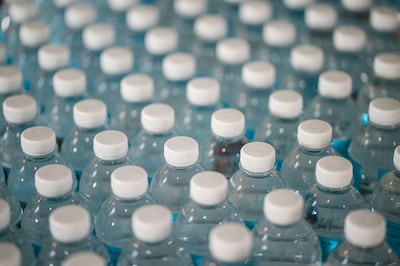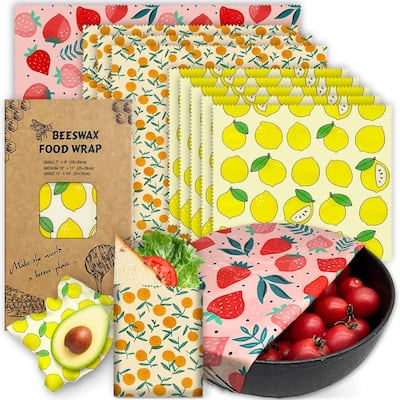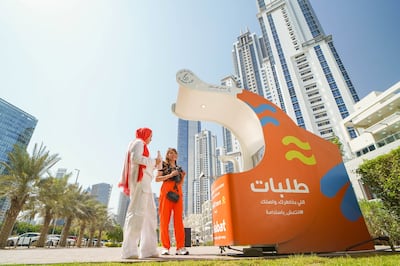The fight against plastics is a joint effort between governments, businesses and individuals, with top-down policies having a more immediate impact.
This year, Earth Day is dedicated to tackling the systemic problem of plastic use, with the goal of reducing production by 60% by 2040. Governments and businesses bear the brunt of the burden, but individual efforts can play a major role in long-term environmental change. .
Dubai banned the use of single-use plastics earlier this year. In 2025, other single-use plastic products such as stirrers, straws, cups, table covers, and Styrofoam food containers will also be banned, and in 2026, the ban on single-use plastic plates, food containers, and tableware will be fully implemented. .
A ban on single-use plastic bags will come into effect in Abu Dhabi from 2022, with more plastic products expected to be included on the list in the coming years.
This represents considerable progress on the policy front. It is now up to individual residents to be more thoughtful about their plastic use. Thankfully, there are some hacks and tips that can help you with this mission.
Calculating annual plastic usage
The first thing you can do is evaluate your plastic footprint. How much plastic do you use on a regular basis? Organizers of the Earth Day campaign have created a plastic calculator to quantify people’s plastic use, considering how easy it is to contribute to the problem without knowing. did.

This online calculator, available at Earthday.org, asks people to identify their daily and monthly consumption of specific single-use plastic items, such as bottles, cling film, and food containers. It then automatically estimates annual consumption and makes people aware of their plastic use first and foremost. Because, as the website says, “You can’t measure what you can’t manage.”
The campaign aims to instill awareness in people and encourage them to adopt greener habits in their daily lives, but it is up to them to decide how. Businesses with more alternatives available and consumers with tips and tricks in mind to reduce waste can work together to make a difference.
Researching environmentally friendly alternatives
Once you’ve identified the biggest culprits in your routine, researching sustainable swaps becomes a little easier. These decisions may seem trivial (and sometimes expensive to set up), but they can be extremely helpful in terms of habit building and long-term environmental impact.
Most plastic products are found in the kitchen and bathroom, so that’s a good place to start when implementing your plastic plan. Many people are already opting for sustainable essentials like reusable water bottles, cutlery and straws, but this is just the tip of the iceberg when it comes to using plastic in places like the kitchen and bathroom.
For example, instead of cling film for preserving food, a variant of beeswax can provide a long-term, environmentally friendly alternative. Buying a new toothbrush? Bamboo beats plastic. Cotton swabs are most often made of plastic, but keep bamboo alternatives available. Food containers can be made of cardboard, and diapers can be made from plant-based materials. However, you should also check the biodegradable content of these products.

Major supermarkets sell reusable eco bags at local stores for a fee. If you order from a small supermarket, you can verbally request a reduction in plastic bags. When purchasing fruits and vegetables, you can use one bulk bag or ideally use net bags to store loose items together.
Used plastic bags can be reused as garbage bags to maximize their usefulness (more on this below).
Going completely plastic-free can prove difficult, especially when considering factors such as time and cost. Eco-friendly products can sometimes seem more expensive than their plastic counterparts. When plastic cannot be avoided, recycling steps in. UAE residents can check local recycling programs. There are several recycling kiosks in Dubai and Abu Dhabi where people can dispose of plastic items such as bottles.

For example, Washmen, an online laundry service, not only takes away plastic items but also paper and cardboard for recycling with every appointment.
If you can’t eliminate plastic completely, aim to make the most of it. Ice cream and butter containers can be reused as planters or storage areas for small items.
Some companies also have refill stations for toiletries such as shampoo and shower gel. The Botanist offers refills for dish detergent, hand soap and floor cleaner, while The Body Shop sells refillable aluminum bottles. There are also water stations in Dubai and Abu Dhabi. So you can refill water while riding without having to buy a new bottle.
In addition to water and cleaning essentials, some supermarkets also have bulk sections where you can restock pantry staples like pasta, nuts, spices, and oils. Grandiose, which has branches in Dubai and Abu Dhabi, as well as major chains such as Carrefour and Spinneys also offer this service.
Updated: April 22, 2024, 11:51 a.m.

